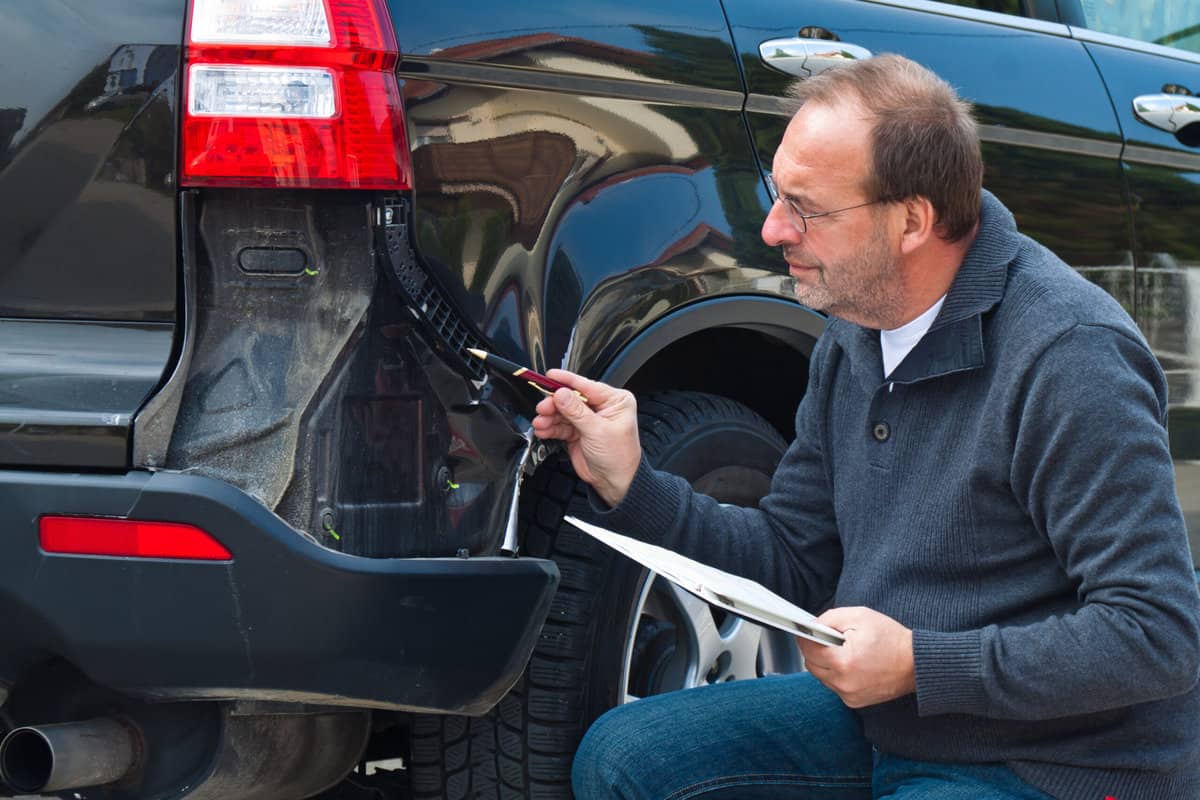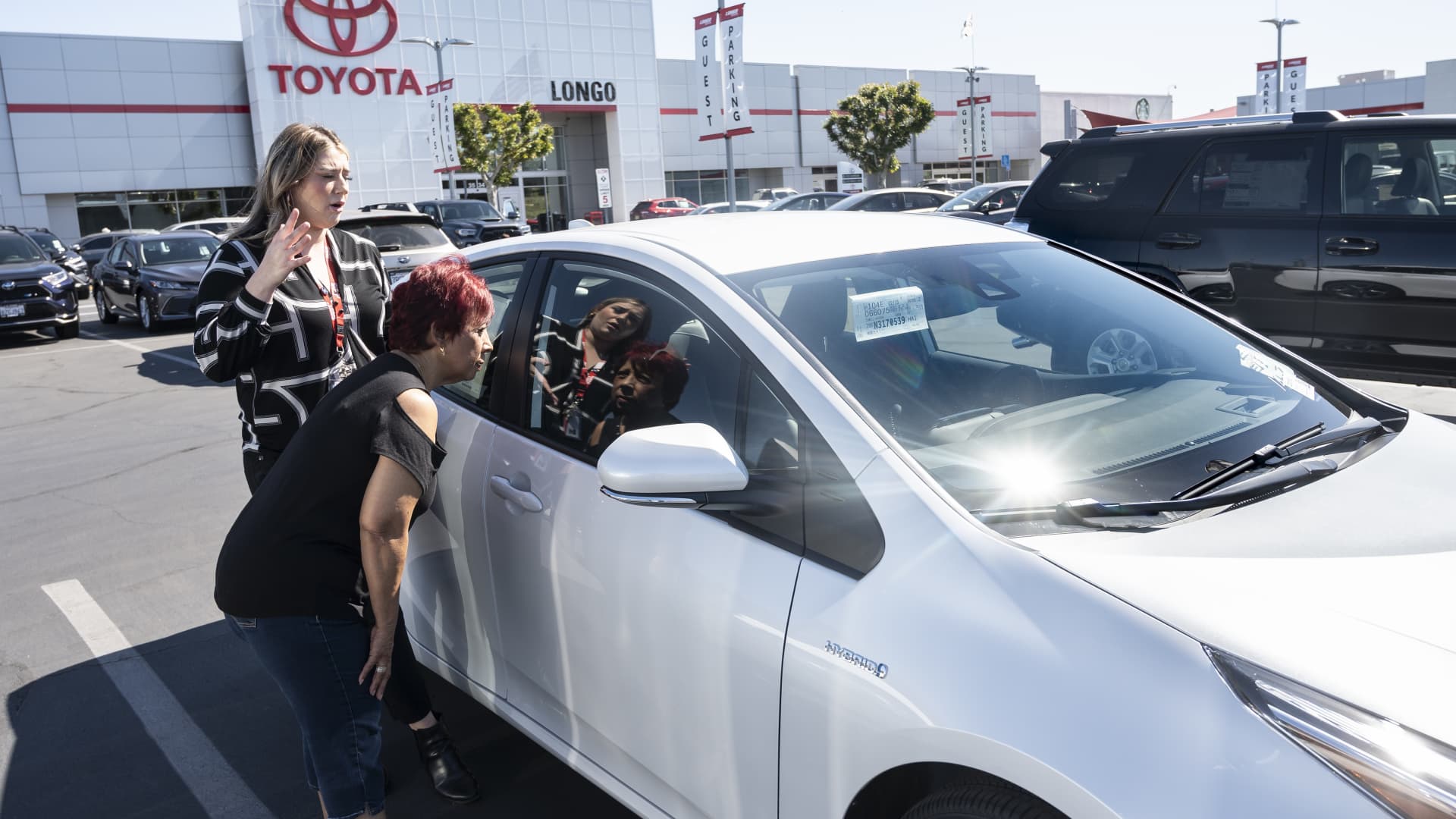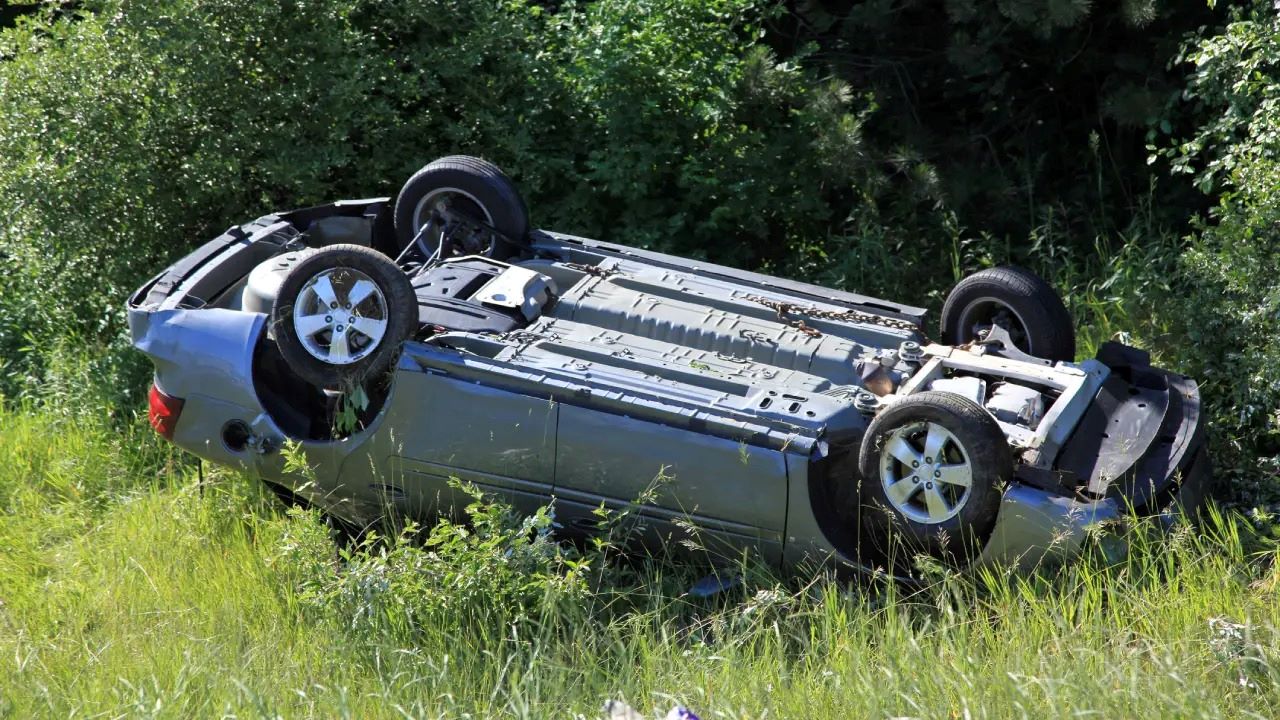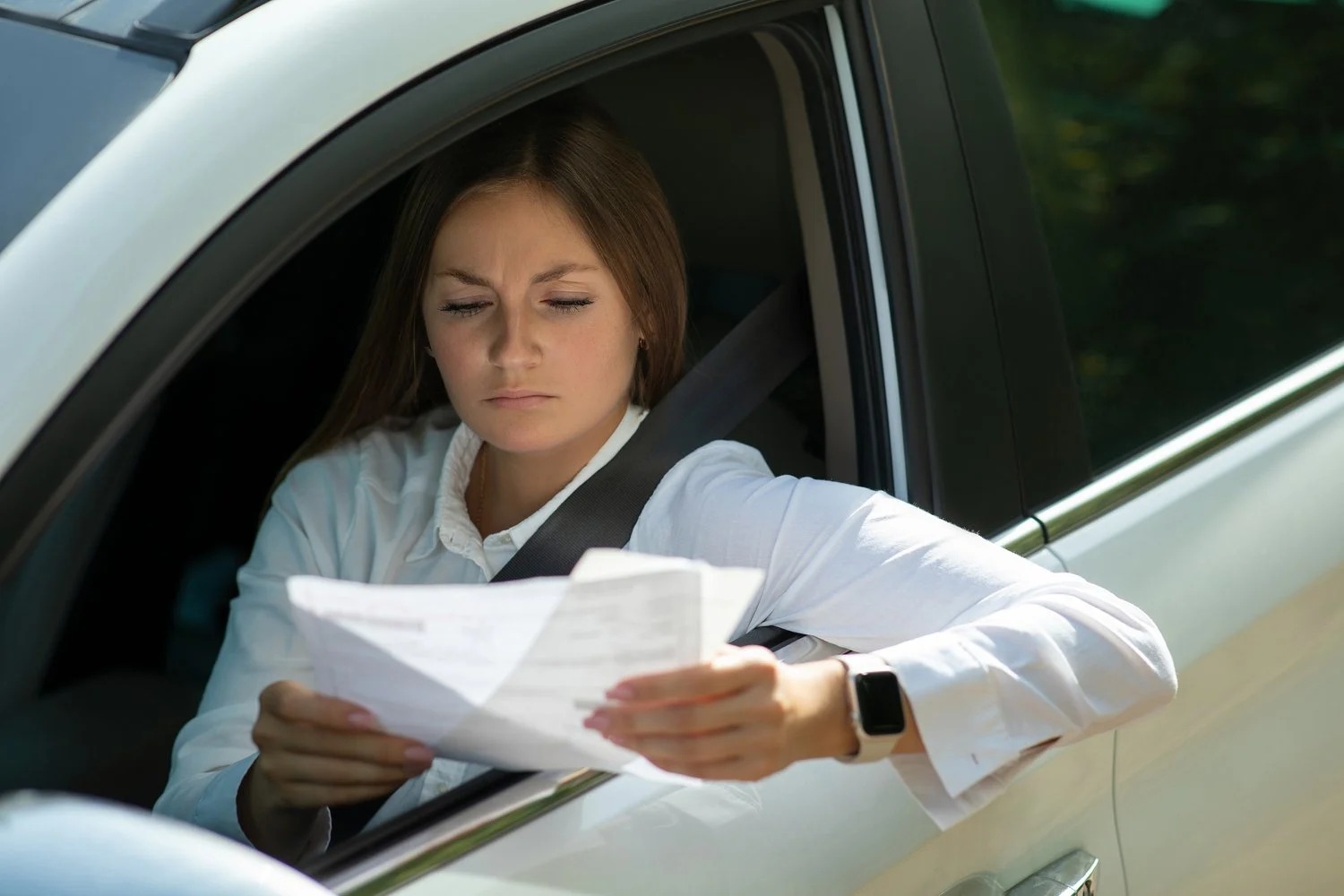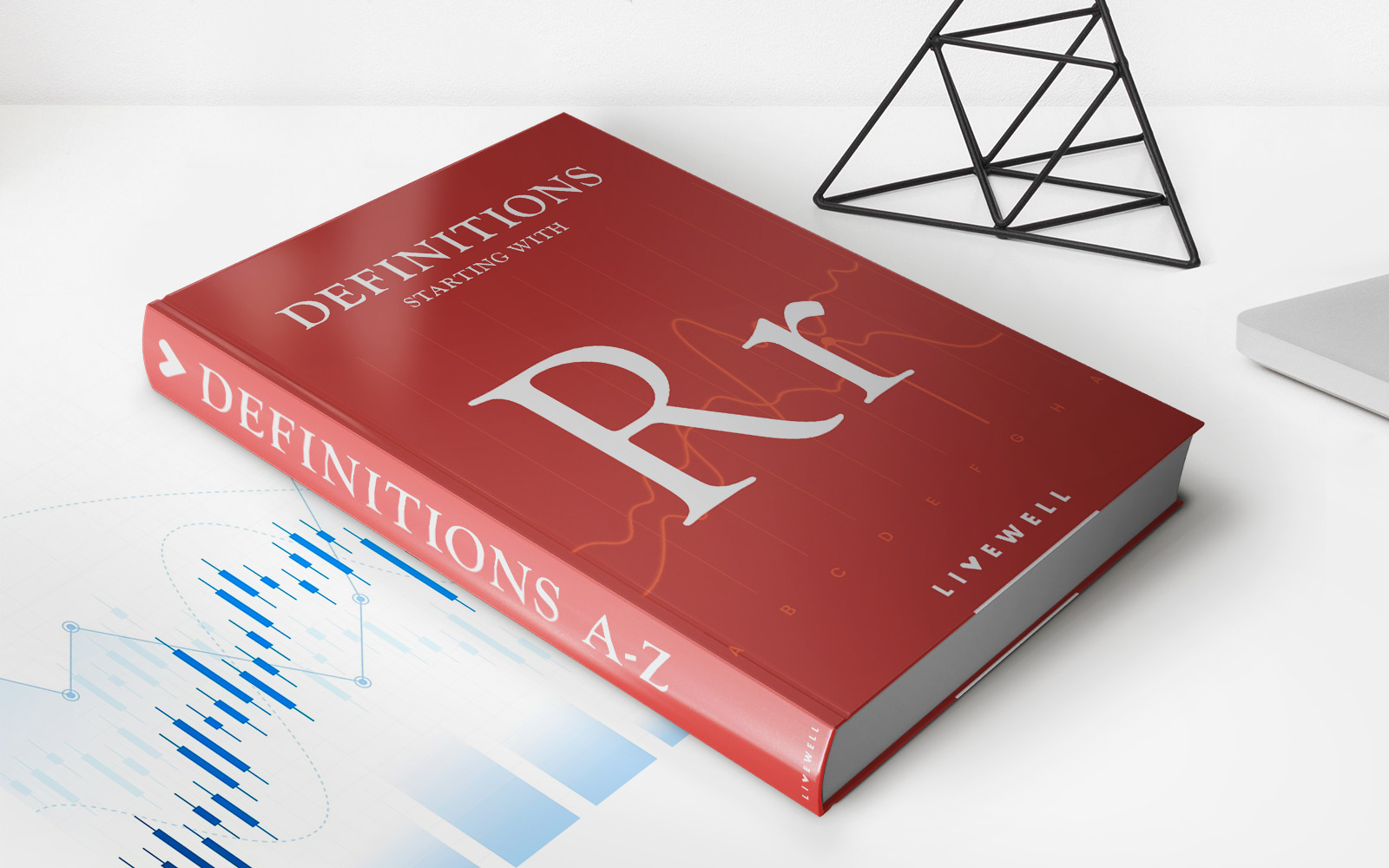Home>Finance>What Happens If You Crash A Rental Car Without Insurance?
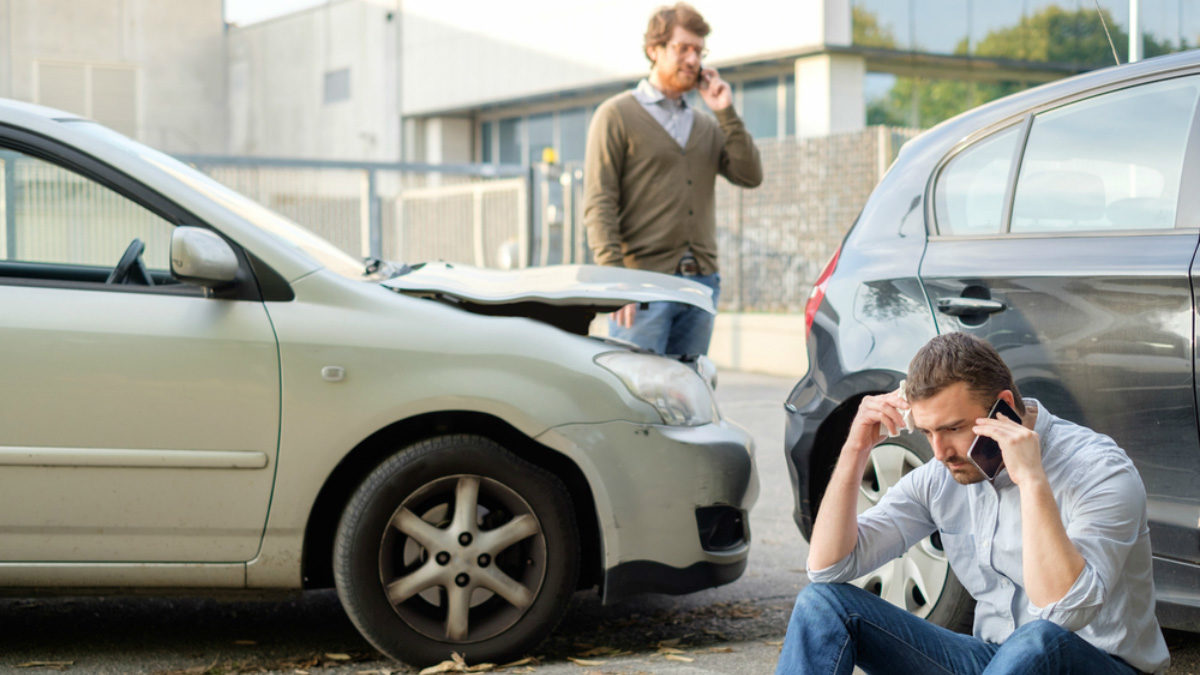

Finance
What Happens If You Crash A Rental Car Without Insurance?
Published: November 17, 2023
Discover the financial consequences of crashing a rental car without insurance. Learn what you need to know about the costs and how to protect yourself financially.
(Many of the links in this article redirect to a specific reviewed product. Your purchase of these products through affiliate links helps to generate commission for LiveWell, at no extra cost. Learn more)
Table of Contents
Introduction
Welcome to the exciting world of car rentals! Renting a car can offer great convenience and flexibility, whether you’re on vacation or in need of temporary transportation. However, it’s essential to understand the importance of rental car insurance and the potential consequences of driving a rental car without proper coverage.
Rental car insurance provides protection and peace of mind in the event of an accident or damage to the rental vehicle. Many rental companies offer insurance options that can be added to your rental agreement, ensuring you’re financially protected should an unexpected incident occur.
But what happens if you find yourself in a car crash without rental car insurance? Well, buckle up, because the consequences can be quite significant.
Before we dive into the potential consequences, let’s take a moment to understand the different types of rental car insurance and why they are crucial.
Understanding Rental Car Insurance
There are typically three types of rental car insurance: collision damage waiver (CDW), liability insurance, and personal accident insurance.
CDW, also known as loss damage waiver (LDW), is the most common type of rental car insurance. It covers the cost of damages to the rental car if it’s involved in an accident or stolen. CDW is not technically insurance, but rather a waiver that transfers the responsibility for vehicle damage from you to the rental car company.
Liability insurance protects you against any third-party claims for bodily injury or property damage caused by the rental car. This coverage is especially important as it protects you from potentially hefty lawsuits and medical expenses in the event of an accident.
Personal accident insurance provides coverage for medical expenses arising from injuries sustained by you and your passengers in a car accident.
Keep in mind that rental car insurance policies can vary between rental companies and countries, so always read the terms and conditions carefully to understand what is covered.
Now that we have a basic understanding of rental car insurance, let’s explore the potential consequences of getting into a car crash without insurance.
Understanding Rental Car Insurance
When renting a car, it’s important to understand the different types of rental car insurance coverage options available to you. Having the right insurance can provide peace of mind and protection in case of an accident or damage to the rental vehicle.
Here are the three primary types of rental car insurance you should be aware of:
- Collision Damage Waiver (CDW): CDW, also known as a loss damage waiver (LDW), is not technically insurance but a waiver that transfers the responsibility for any damages to the rental car from you to the rental car company. In the event of an accident or theft, CDW typically covers the cost of repairs or the total value of the vehicle.
- Liability Insurance: Liability insurance is designed to protect you against any third-party claims for bodily injury or property damage caused by your rental vehicle. This coverage is important as it can help protect you from potentially costly lawsuits and medical expenses resulting from an accident.
- Personal Accident Insurance: Personal accident insurance provides coverage for medical expenses resulting from injuries sustained by you and your passengers in a car accident. It can help cover medical bills, ambulance fees, and other related expenses.
It’s important to note that rental car insurance policies can vary between rental companies and countries. Some rental companies may offer additional coverage options or variations of the above policies. Always read the terms and conditions carefully and consider your specific needs when choosing rental car insurance.
When considering whether to purchase rental car insurance, it’s essential to understand if you already have coverage through your personal auto insurance policy or credit card benefits. Some personal auto insurance policies may extend coverage to rental cars, while certain credit cards offer rental car insurance as a perk when you use the card to pay for the rental.
If you decide to rely on your personal insurance or credit card coverage, be sure to review the specific terms and limitations. It’s also worth noting that relying on personal coverage may involve a deductible or claims process that could affect your future rates.
Remember, rental car insurance provides an added layer of protection and peace of mind when you’re on the road. By understanding the different insurance options available and determining your specific needs, you can make an informed decision and enjoy your rental car experience with confidence.
What Happens in a Car Crash without Rental Car Insurance?
Getting into a car crash is never a pleasant experience, and it becomes even more complicated if you don’t have rental car insurance. Without proper coverage, several consequences can arise:
- Financial Responsibility: When you’re involved in a car crash without rental car insurance, you become financially responsible for all damages to the rental vehicle, repairs, and any other related costs. This includes the cost of repairs, replacement of damaged parts, and even the rental company’s loss of income while the vehicle is being repaired.
- Out-of-Pocket Expenses: With no insurance to cover the costs, you’ll have to pay for all damages and related expenses out of your own pocket. Depending on the severity of the damage, this can amount to a significant sum of money.
- Legal Consequences: Without rental car insurance, you may face legal consequences. Rental companies often have policies that allow them to pursue legal action if you damage their vehicle and don’t have adequate insurance. This can lead to lawsuits and further financial burden.
- Loss of Deposit: Most rental car companies require a deposit or hold on your credit card when you rent a vehicle. In the event of an accident, without insurance, the rental company can use that deposit to cover the damages. This can result in the loss of your deposit or even additional charges if the damages exceed the deposit amount.
- Damage to Personal Finances: Paying for car repairs and related expenses without insurance can have a significant impact on your personal finances. It may lead to unexpected and hefty expenses that can disrupt your budget and financial stability.
- Future Rental Difficulties: If you crash a rental car without insurance, it can create difficulties for you when trying to rent a car in the future. Rental companies may consider you a high-risk customer and may impose additional restrictions or higher fees due to the previous incident.
It’s important to remember that the specific consequences may vary depending on the rental car company, the severity of the damage, and the local regulations. However, it’s generally prudent to have rental car insurance in order to protect yourself financially and legally in case of an accident.
In the unfortunate event of a car crash without rental car insurance, it’s crucial to address the situation promptly and responsibly. Contact the rental car company immediately, inform them about the accident, and cooperate fully with their procedures.
Always keep in mind that having proper rental car insurance can save you from significant financial distress and provide you with peace of mind, allowing you to focus on enjoying your trip without worry.
Legal and Financial Consequences
Getting into a car crash without rental car insurance can have serious legal and financial consequences. Here’s what you need to know:
1. Liability for Damages: When you don’t have rental car insurance, you are personally liable for all damages caused to the rental vehicle. This means you may have to pay for the repairs or, in worst-case scenarios, the full value of the vehicle if it is deemed a total loss. The rental company may pursue legal action to recover these costs, potentially leading to lawsuits and court judgments against you.
2. Legal Penalties: Driving a rental car without insurance is against the law in many jurisdictions. If you are caught driving without insurance, you may face legal penalties such as fines, license suspension, or even imprisonment depending on the applicable laws in your location. These penalties can have long-lasting impacts on your driving record and future insurance rates.
3. Potential Lawsuits: If you cause an accident while driving a rental car without insurance, you may be held personally responsible for any injuries or property damage sustained by other parties involved in the accident. This can result in lawsuits seeking compensation for medical expenses, lost wages, pain and suffering, and other damages. Without insurance coverage, you may have to pay these costs out of your own pocket, which can be financially devastating.
4. Damage to Credit Score: If you are unable to pay for the damages or losses incurred to the rental vehicle, the rental company may report the unpaid balance to credit bureaus. This can negatively impact your credit score and make it more difficult for you to secure loans or obtain favorable interest rates in the future.
5. Increased Insurance Rates: Even if you manage to avoid legal penalties and lawsuits, driving a rental car without insurance can still have repercussions on your personal auto insurance. Insurance companies typically view drivers without prior insurance coverage as higher risk. As a result, you may face increased insurance rates or difficulty in obtaining coverage in the future.
It’s crucial to understand that the legal and financial consequences of driving a rental car without insurance can vary depending on your location, the severity of the accident, and the specific rental company’s policies. However, it’s universally advisable to protect yourself by having adequate rental car insurance and complying with local laws.
Remember, rental car insurance is not just an optional add-on; it is a safeguard that can potentially save you from significant financial burdens and legal troubles in case of an accident.
Liability for Damages
One of the major concerns when crashing a rental car without insurance is the liability for damages. Without insurance coverage, you become personally responsible for all costs associated with the accident. Here’s what you need to know:
1. Repair Costs: When you damage a rental car in a crash, you are obligated to pay for the repair costs. The rental company may assess the damages and provide an estimate for the necessary repairs. Depending on the extent of the damage, these costs can range from minor repairs to significant structural or mechanical work.
2. Replacement Costs: If the rental car is deemed a total loss due to the crash, you may be responsible for the full value of the vehicle. This can be a substantial financial burden, especially if the car is newer or belongs to a higher price range. The rental company will typically provide an appraisal of the vehicle’s value, and you will need to compensate them accordingly.
3. Loss of Use Charges: In addition to repair or replacement costs, the rental car company may also charge you for the loss of use while the vehicle is being repaired or replaced. This means you may be responsible for paying the rental rate for the days the car is out of service, even if you are unable to use it.
4. Administrative Fees and Additional Charges: Some rental companies may add administrative fees or other miscellaneous charges on top of the repair costs. These fees can include processing fees, towing fees, or any other expenses related to managing the accident and the rental car’s repairs.
5. Potential Deductibles: If you have personal car insurance or coverage through a credit card, they may have deductibles that you are responsible for before they take effect. This means that even with insurance, you may still have to pay a certain amount out of pocket before the coverage kicks in.
It’s important to note that if you caused the accident while driving the rental car, you may also be liable for any damages or injuries sustained by other parties involved. This can include property damage, medical expenses, and even legal fees if lawsuits are filed against you. Without rental car insurance, you may have to cover these costs on your own.
When renting a car, it is crucial to carefully read the rental agreement and understand the terms and conditions, including the liability for damages. Additionally, consider rental car insurance options and determine if it’s cost-effective for your situation. Being aware of your financial responsibility in case of a crash can help you make informed decisions and avoid potential financial hardships.
Rental Car Company Policies
Each rental car company has its own specific policies regarding insurance coverage and procedures in the event of a car crash. It’s important to familiarize yourself with these policies to understand your rights and obligations. Here are some common aspects of rental car company policies:
1. Required Insurance: Rental car companies typically require renters to have some form of insurance coverage. This can include personal auto insurance or purchasing the rental company’s insurance options, such as collision damage waiver (CDW) or liability insurance. Failure to provide proof of insurance or declining the rental company’s insurance may result in additional requirements or restrictions.
2. Acceptance of Insurance Coverage: If you have personal auto insurance or coverage through a credit card, rental car companies may accept these as valid insurance options. However, it is essential to verify with both your insurance provider and the rental company to ensure that you have adequate coverage for the rental vehicle.
3. Documentation and Reporting: In the event of an accident, rental car companies require documentation and reporting. This typically includes contacting the rental company’s emergency assistance line, local authorities, and providing a detailed account of the incident. Failure to report the accident promptly may result in complications or additional costs.
4. Damage Assessment: After a car crash, the rental company will assess the damage to the vehicle. This may involve sending the car for repairs at an authorized body shop or conducting an inspection to determine the extent of the damage. The rental company will provide you with their assessment and a breakdown of the costs associated with repairs or replacements.
5. Claims and Reimbursement: If you have rental car insurance, the rental company may handle the claims process on your behalf. They may coordinate with the insurance provider and arrange for the payment of the damages. If you don’t have insurance or declined the rental company’s coverage, you will be responsible for paying the costs directly to the rental company.
6. Rental Car Replacement: In some cases, if the rental vehicle is no longer drivable after a crash, the rental company may provide a replacement car. However, this is typically dependent on the availability of vehicles and specific policies of the rental company.
It is crucial to carefully review the rental agreement and terms and conditions provided by the rental car company before signing and driving off with the vehicle. Pay close attention to insurance requirements, reporting procedures, and any additional fees or charges that may apply in the event of an accident. Understanding the rental car company’s policies can help you navigate the aftermath of a car crash with better clarity and reduce potential misunderstandings.
Tips for Dealing with a Rental Car Crash without Insurance
Getting into a rental car crash without insurance can be a stressful and challenging situation. While prevention is always the best approach, accidents can happen. Here are some tips to help you navigate the aftermath of a rental car crash without insurance:
1. Safety First: Your safety and the safety of others involved should be your top priority. Assess the situation, and if necessary, move to a safe location away from traffic. If there are injuries, call emergency services immediately.
2. Notify the Authorities: Contact the local authorities and report the accident. It is essential to have an official police report documenting the incident, which may be required by the rental car company and insurance providers.
3. Inform the Rental Car Company: Immediately notify the rental car company about the accident. They will provide you with specific instructions on what to do next, such as arranging for the vehicle’s tow, initiating the claims process, or providing a replacement car if available.
4. Cooperate Fully: Provide the rental car company with all the necessary information and documentation they require. This may include completing accident report forms, providing a detailed account of the incident, and cooperating with their investigation or claims process.
5. Consider Legal Advice: If you are facing potential lawsuits or substantial financial liability, it may be beneficial to seek legal advice. An attorney specializing in rental car accidents can guide you through the legal process and help protect your rights and interests.
6. Explore Personal Coverage: Review your personal auto insurance policy or coverage through your credit card benefits. While rental cars may be covered to some extent, it’s important to understand the specifics such as deductibles, limitations, and reporting requirements. Contact your insurance provider or credit card issuer to determine the extent of your coverage.
7. Arrange for Payment: Without rental car insurance, you will be responsible for paying for the damages and related costs out of pocket. Discuss payment options with the rental car company, such as setting up a payment plan if needed.
8. Document Everything: Keep detailed records of all interactions, documentation, and expenses related to the accident. This includes photographs of the accident scene, the rental car, and any injuries sustained. These records can be essential for insurance claims, legal proceedings, or potential disputes in the future.
9. Learn from the Experience: Going through a rental car crash without insurance can be a learning experience. Take the opportunity to understand the importance of rental car insurance and the potential consequences of driving without proper coverage. Use this experience to make informed decisions in the future and ensure you are adequately protected.
Remember, prevention is key when it comes to accidents. Consider purchasing rental car insurance or using alternative transportation options if you are unsure about your coverage. By being proactive and informed, you can minimize the financial and legal risks associated with rental car accidents.
Conclusion
Driving a rental car without insurance can lead to severe legal and financial consequences in the event of an accident. It is essential to understand the importance of rental car insurance and the potential risks involved. Without proper coverage, you may be personally liable for all damages, repairs, and related costs, which can result in significant financial burdens.
When renting a car, familiarize yourself with the rental car company’s insurance policies and consider purchasing adequate coverage. It’s also important to review your personal auto insurance policy or credit card benefits to determine if they extend to rental vehicles.
In the unfortunate event of a rental car crash without insurance, prioritize safety and promptly notify the rental car company and the authorities. Cooperate fully with the rental car company’s procedures, document the incident, and seek legal advice if necessary.
Remember, prevention is the best approach. Carefully review rental car agreements, drive responsibly, and consider purchasing rental car insurance to protect yourself from the potential legal and financial consequences of driving without coverage.
By being proactive and informed, you can ensure a smoother and more enjoyable experience when renting a car, with peace of mind knowing that you are adequately protected in case of an unexpected accident.

